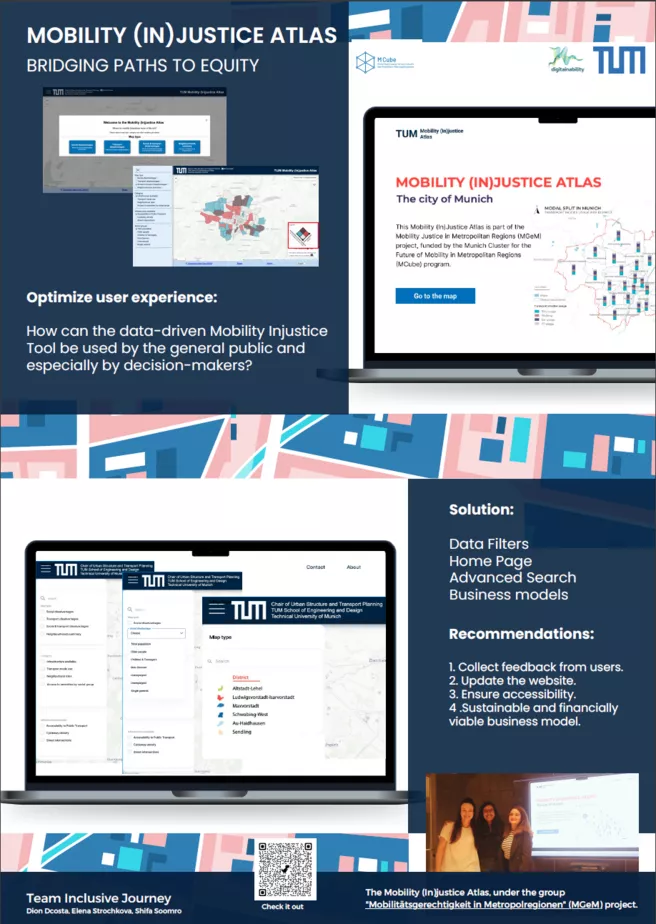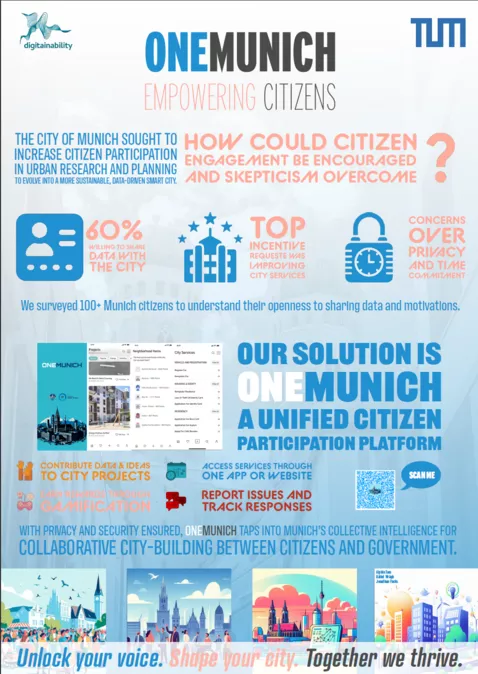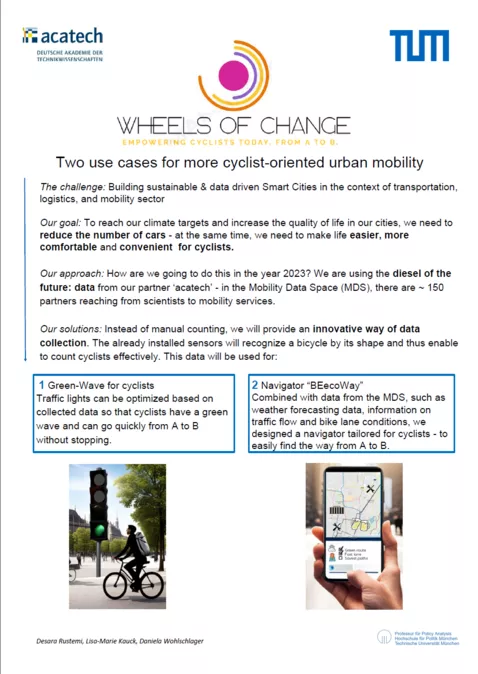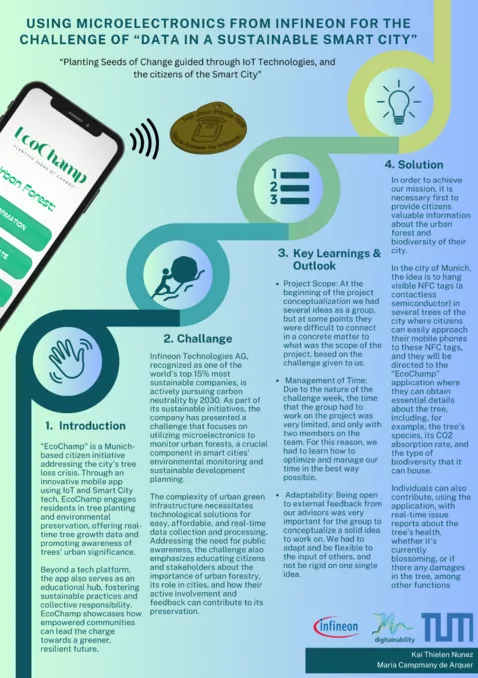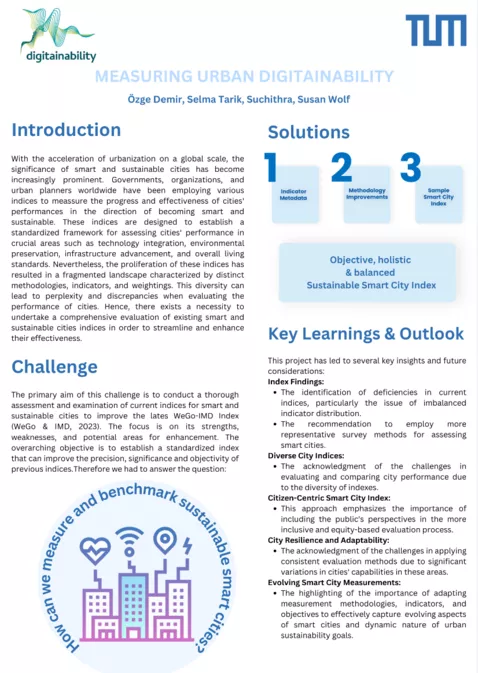Digitainability: Promoting responsibility & implementing innovations through project-based learning

Project description
In the 21st century, our world is shaped by two major megatrends: the rapid digital transformation across states, economies, and societies, and the urgent need for social, economic, and ecological sustainability. As we face increasing challenges from the depletion of natural resources, it is essential to adopt a more sustainable way of living and working. In this context, digital innovations and applications emerge as vital tools in our pursuit of environmental protection and sustainable development. The potential for synergies between digitalization and sustainability is vast, offering opportunities to address resource issues, develop innovative mobility concepts, reshape industry standards, and tackle social inequalities.
However, it is crucial to recognize that digitalization is not inherently positive; a thoughtful direction and mindful integration are required to mitigate negative effects such as rising energy consumption, increased CO2 emissions, and potential social, health, and ethical implications of digital technologies.
The project weeks will span over two weeks, featuring expert inputs and discussions, as well as an interactive workshop week including design sprint challenges, and networking sessions. Students will be encouraged to think creatively and develop practical approaches to address the complex issues at the intersection of digitalization and sustainability.
The project is funded by the TUM Ideas Competition for "Study-Related Reinforcement of the Excellence Strategy".
We welcome real world challenges from partner organisations from industry, administration or civil society at any time. In case of any queries or interest to collaborate, we would be very pleased if you contact us via the email: digitainabilityTUM@hfp.tum.de
Project team
Helene von Schichow, Dragos Bucataru & Stefan Wurster
Results Project Week: Sustainable Smart Cities
In the summer semester 2022/2023, students worked in teams to develop technical and non-technical solutions for real-life challenges in the field of "Sustainable Smart Cities".
MCube
How can the data-driven Mobility Injustice Tool be used by the general public and especially by decision-makers?
City of Munich
How could citizen engagement be encouraged and skepticism overcome?
Acatech
How can we build sustainable & data driven Smart Cities in the context of transportation, logistics, and mobility sector?
Infineon
How can we use microelectronics to monitor urban forests?
WeGo
How can we measure and benchmark Sustainable Smart Cities?
Acatech
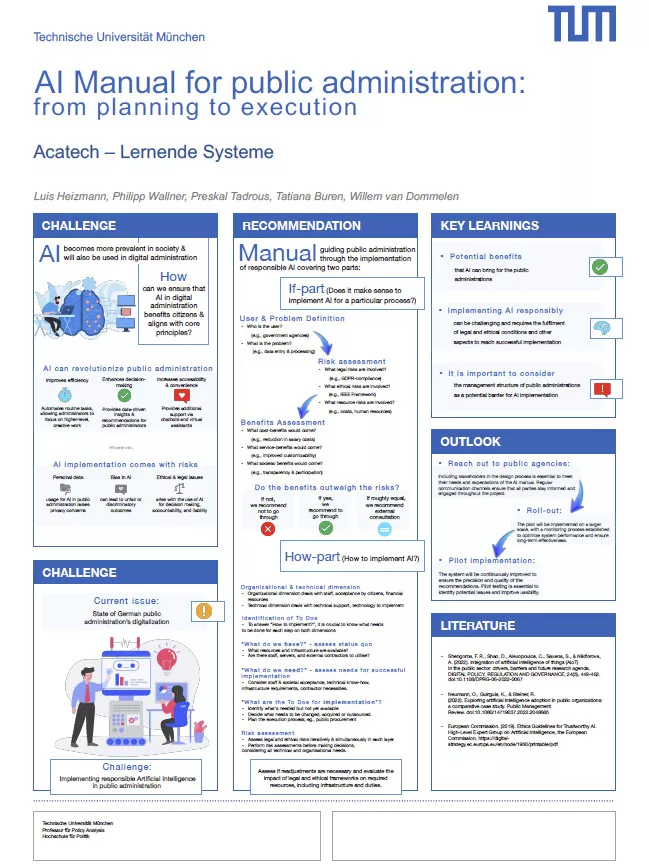
AI Manual for public administration: from planning to execution
Vote Rookie
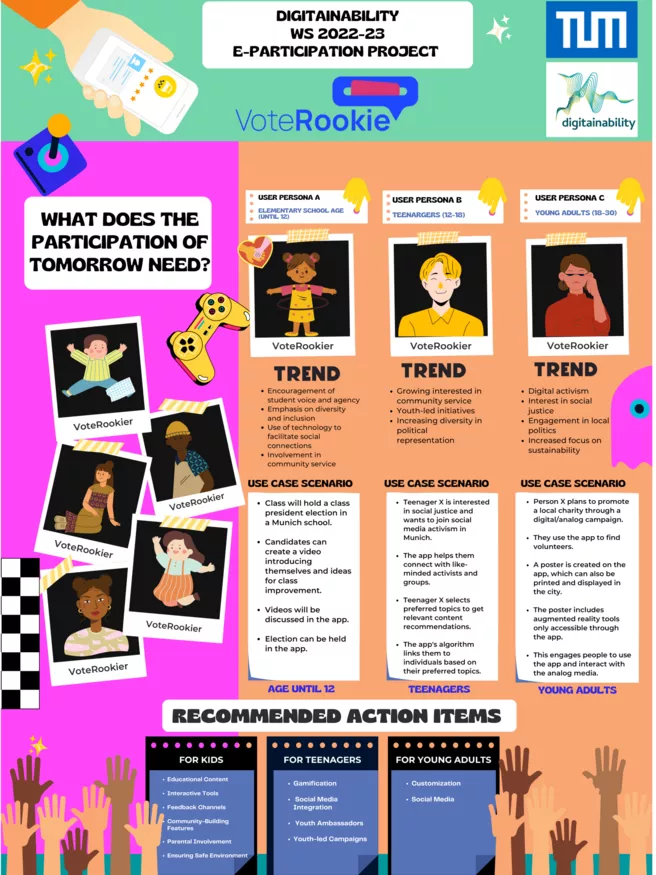
What does the participation of tomorrow need?
eKairos
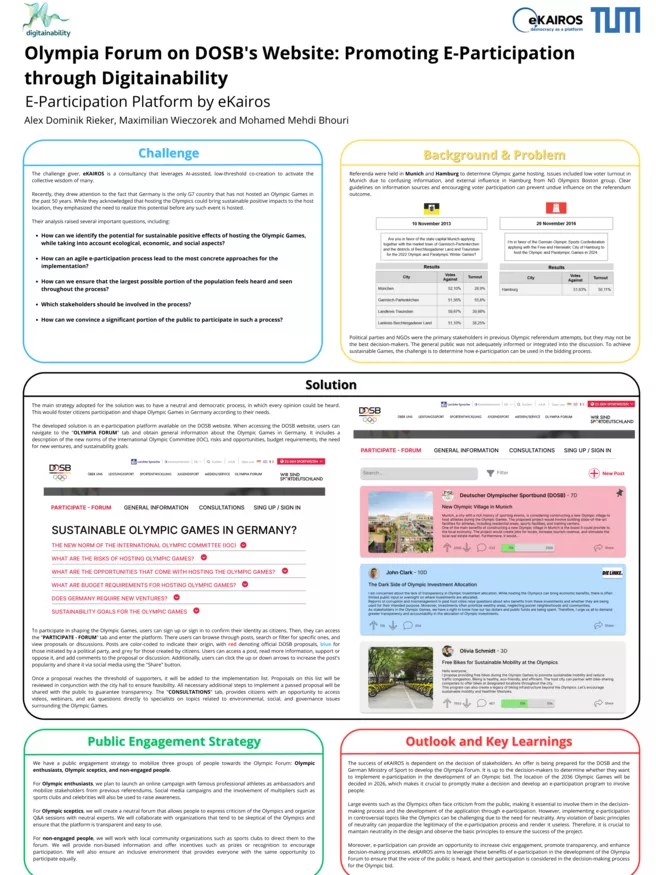
Olympia Forum on DOSB's Website: Promoting E-Participation through Digitainability
Initiative 72:22
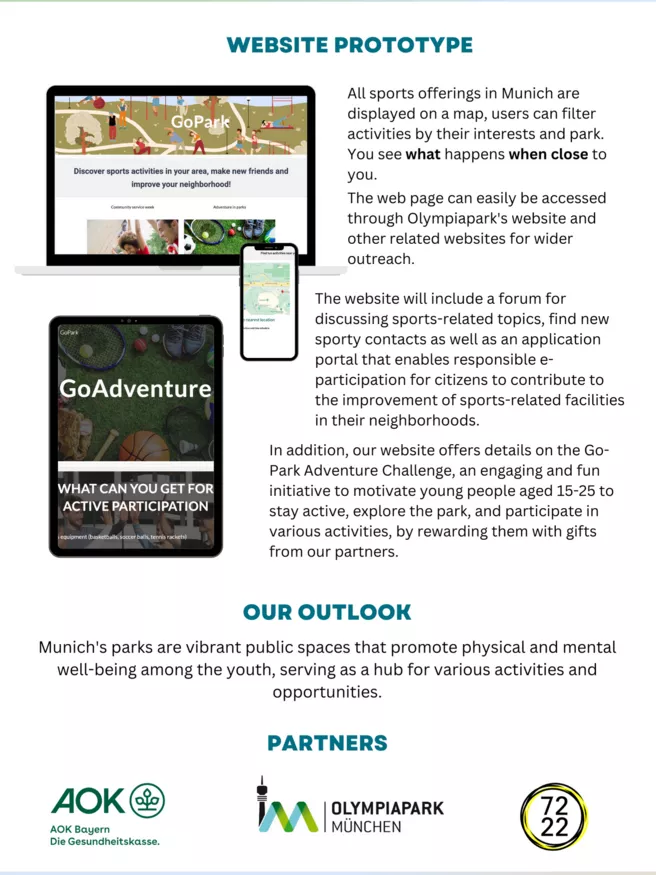
GoPark Initiative
City of Munich
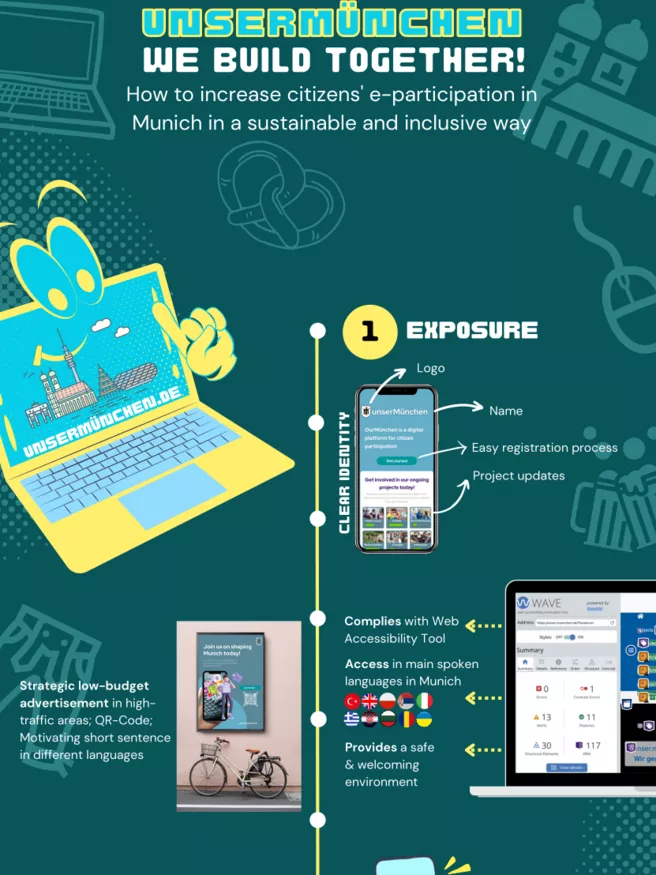
How to increase citizens' e-participation in Munich in a sustainable and inclusive way
Landeszentrale für politische Bildung
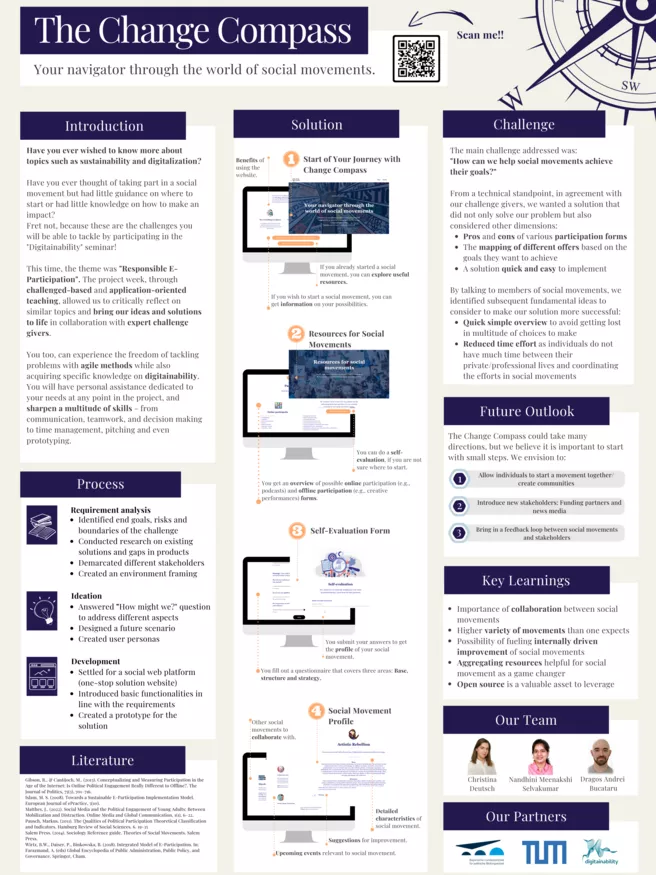
The Change Compass: your navigator through the world of social movements.
Results Project Week: Sustainable Smart Cities
In the winter semester 2021/2022, students worked in teams to develop technical and non-technical solutions for real-life challenges in the field of "Sustainable Smart Cities"
Challenge 1 - Landeszentrale für Politische Bildung
“Find an engaging way to inform people about possible digital ways to reduce CO2 emissions on a municipal level. Focus especially on the different political options and their consequences for implementation” by Dr. Katja Friedrich and Maximilian Nominacher, Bayerische Landeszentrale für politische Bildungsarbeit.
Learn more about the project results here.
Challenge 2 - Stiftung Mercator
“Design strategies, concepts or specific business ideas for digitalized mobility approaches which are ecologically and socially sustainable and ensure a high degree of social participation for many people in rural Bavaria by Lea W. & Dr. Klaus Kordowski, Stiftung Mercator GmbH.
Learn more about the project results here.
Challenge 3 - Acatech
“Creating a liveable and future proof urban landscape through integrated spatial and mobility planning: Explore the interdependence between urban design and local mobility by analyzing the Maxvorstadt neighbourhood” by Yulika Zebuhr & Wolfgang Blumthaler, acatech – Deutsche Akademie der Technikwissenschaften.
Challenge 4 - MCube
“How can we make existing charging infrastructure (private and semi-public) accessible for all users to reduce space consumption and new investments?” by Daniel Schröder, MCube - Munich Cluster for the future of Mobility in Metropolitan Regions.
Learn more about the project results here.
Challenge 5 - Fraunhofer ISE
“How can we digitally provide information about the surfaces and their actual usage in order to support a city’s sustainable development?” by Sarah Brandt & #MatthiasBerg, Fraunhofer IESE.
Learn more about the project results here.
